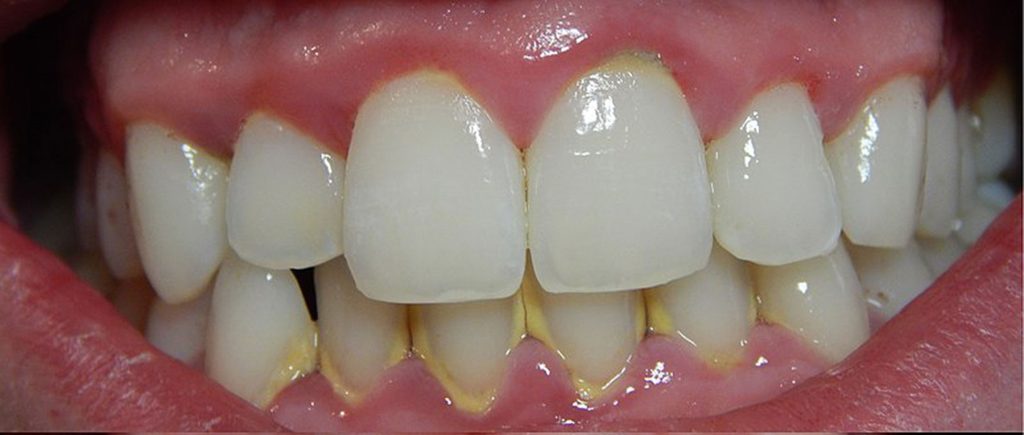What Is An Integrative Medical Consultant
What Is An Integrative Medical Consultant Integrative medicine is a paradigm of healthcare that views you not merely as a collection of symptoms but as a whole person encompassing mind, body, and spirit. It delves into the root causes of your ailments while considering the intricate interplay of your physical, mental, emotional, and spiritual needs. This holistic approach utilizes evidence-based practices to enhance your overall well-being and vitality.
The Symbiotic Nature of Your Well-Being
In the realm of integrative medicine, the belief is that your physical health, mental clarity, emotional equilibrium, and spiritual fulfillment are interconnected. These facets of your life influence and rely on each other, profoundly impacting your holistic well-being. The multifaceted nature of your health necessitates a multifaceted approach.
Collaborative Healing and Well-Coordinated Care
One hallmark of integrative medicine is the pivotal role you play in your healing journey. Here, you’re regarded as an equal partner alongside your healthcare providers. The approach seeks to foster well-coordinated care among various specialists and providers. It seamlessly combines conventional healthcare methods, such as medication and psychotherapy, with complementary therapies like acupuncture and yoga. The ultimate goal is to harmonize all aspects of your well-being, crafting a path to optimal health and healing.
The Architects of Integrative Medicine
Diverse healthcare providers champion the cause of integrative medicine. The roster may include:
- Physicians
- Chiropractic Doctors
- Holistic Mind-Body Psychotherapists
- Acupuncturists
- Chinese Herbal Therapists
- Tai Chi Practitioners
- Yoga Instructors
- Massage Therapists
- Nutritionists
- Culinary Experts (Culinary Medicine)
Read More : Why Are Physical Fitness Attitudes Important
The Role of Integrative Medicine
Integrative medicine practitioners complement, rather than replace, your primary care providers or specialists. They align their expertise with the prevention and management of chronic diseases, rather than the treatment of acute medical issues or emergencies. In cases of acute care or medical emergencies, it remains essential to seek assistance from your primary care or emergency medicine physician.
Who Can Benefit from Integrative Medicine?
The scope of integrative medicine extends its benefits to a wide spectrum of individuals, including those in good health. However, it particularly shines in cases of long-lasting (chronic) or intricate conditions. Integrative medicine offers relief and support across a broad spectrum of health and medical issues, including:
- Autoimmune Diseases
- Acute and Chronic Pain
- Respiratory Disorders
- Headaches and Migraines
- Cancer and Cancer-Related Side Effects
- Chronic Fatigue
- Cold and Flu Symptoms
- Digestive Disorders
- Infertility
- Menopausal Symptoms
- Menstrual Issues
- Mental and Emotional Health Issues
- Obesity
- High Blood Pressure (Hypertension)
- Sleep Issues
A Glimpse Into Integrative Medicine Techniques
Integrative medicine embraces a rich tapestry of practices, techniques, and services, each designed to enhance your well-being. Some of these techniques include:
Acupuncture
Acupuncture employs thin needles to balance the body’s energy, known as Qi, facilitating its natural healing capacities. It has been found effective in alleviating conditions such as joint pain, fibromyalgia, migraines, cancer-related symptoms, anxiety, depression, hot flashes, and fatigue.
Chinese Herbal Therapy
This therapy harnesses the wisdom of traditional Chinese medicine, utilizing formulas composed of numerous herbs, minerals, and extracts for various purposes. It can help combat fatigue, digestive disorders, pain, menopausal symptoms, cold and flu symptoms, and more.
Chiropractic Therapy
Chiropractic doctors perform adjustments and manipulations of soft tissue, spine, and joints. It’s a valuable intervention for conditions like back and neck pain, pelvic pain, shoulder, elbow, and wrist pain, as well as musculoskeletal problems.
Culinary Medicine
Culinary medicine melds the science of nutrition and food with the art of cooking. It employs special diets, such as vegan, low-carb, and FODMAP, to enhance wellness and address chronic diseases like diabetes, hypertension, obesity, and non-alcoholic fatty liver disease.
Holistic Psychotherapy
Holistic psychotherapy combines evidence-based therapies to address mood disorders, anxiety, post-traumatic stress disorder (PTSD), and other symptoms. Therapies encompass traditional talk therapy, hypnosis, hypnotherapy, cognitive behavioral techniques, guided imagery, and more.
Massage Therapy
Massage therapy employs soft tissue manipulation and body movement to promote well-being and treat various physical disorders. It’s effective in managing muscle pain, respiratory issues, neurological and muscular disorders, digestive problems, post-operative pain, and lymphedema.
Reiki
Reiki is an energy healing modality that seeks to restore your body’s natural energy balance. It can increase vitality, emotional equilibrium, and overall health. Reiki has been used to alleviate symptoms of cancer, chronic pain, stress, infertility, digestive disorders, and Parkinson’s disease.
Yoga and Tai Chi
These disciplines merge specific postures, movements, and controlled breathing to unite mind and body. They are known to reduce stress, pain, blood pressure, improve posture, increase muscle strength, and promote a sense of joy and well-being.
The Rewards of Integrative Medicine
Integrative medicine techniques are designed to complement your body’s innate healing potential. They facilitate stress reduction, induce relaxation, and empower you to take an active role in your healing journey. By incorporating integrative medicine into your healthcare regimen, you regain control over your well-being and open the door to holistic health.
Navigating the Terrain of Risks
All therapies and lifestyle modifications recommended within integrative medicine carry minimal risks and are considered very safe. However, it’s imperative to understand that these therapies are not substitutes for routine medical care provided by your primary care physician and specialists. Integrative medicine is most effective when integrated into your existing medical treatments. Open communication among your healthcare providers ensures coordinated care and avoids potential confusion.
Read More : Which Sport Below Requires The Least Cardiovascular Fitness
Outlook for Integrative Medicine Recipients
The outlook for individuals embracing integrative medicine varies based on their diagnosis, health history, and the treatments they receive. To enhance the likelihood of favorable outcomes:
- Educate yourself about complementary therapies suitable for your condition.
- Engage in discussions with both your primary care physician and integrative medicine providers to evaluate risks and benefits.
- Remember that complementary therapies are intended to complement, not replace, your primary care physician’s treatment.
- Keep your healthcare provider informed about any complementary therapies you undertake.
When to Engage Your Healthcare Provider
Throughout your integrative medicine journey, ongoing communication with your healthcare provider is essential. Sharing details about the integrative medicine therapies you’re undergoing ensures a seamless and safe healthcare experience.
Integrative Medicine vs. Functional Medicine
Integrative medicine and functional medicine share similarities but approach healing from slightly different angles. Integrative medicine adopts a holistic perspective, seeking to understand you comprehensively and utilizing various therapies to heal your mind, body, and spirit. In contrast, functional medicine focuses on identifying and treating the underlying cause of your condition, acknowledging that one cause can manifest as multiple conditions or vice versa.
A Closing Note from Cleveland Clinic
Integrative medicine combines diverse therapies and lifestyle modifications to holistically address your health and well-being. It places paramount importance on your complete mind, body, and soul, employing an evidence-based approach to enhance your health and vitality. In the world of integrative medicine, the relationships between you and your healthcare providers are of utmost significance. Always remember, you are an equal partner in your healing journey. Foster open communication with all your providers to maximize the benefits of your treatment.




